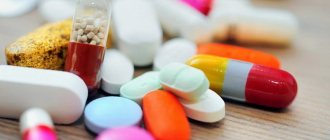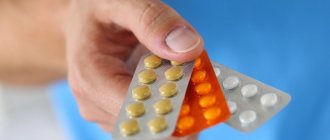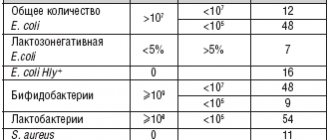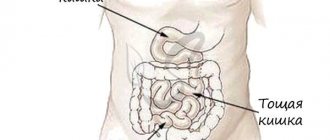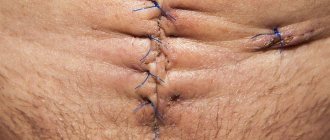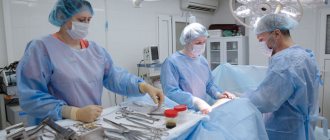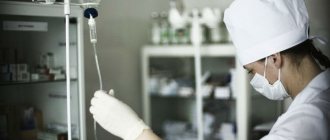Chemotherapy is one of the non-surgical ways to fight cancer. Treatment is based on the introduction into the patient’s body of drugs that contain toxins and poisons that inhibit or completely stop the growth of a malignant tumor. Chemotherapy causes enormous damage to the human body. As a result of exposure to poisons and toxins, not only atypical cells are damaged and die, but also healthy ones, the liver, kidneys and other systems are affected. Therefore, after chemotherapy, a person needs treatment - comprehensive, professional, which will help cope with the side effects, get better and fully recover.
Restoration of the absorptive organ ecosystem after a course of chemotherapy
Drug correction is one of the most effective and reliable means of stabilizing microflora. In practical medicine, preparations are often used that are made on the basis of plantain, echinacea, bee products and homeopathic substances (echinacea compositum, immunoflazide). Interferon-type drugs (Laferon, Cycloferon, Roncoleukin) and amino acid structures (Imunofan) have proven themselves to be quite reliable and of high quality.
The use of medications must be under the supervision of a specialist who will evaluate the patient’s immunogram. Uncontrolled use of immunomodulators is unacceptable.
Therapy should be carried out in the area where the disorder is specifically concentrated. In case of insufficient cellular immunity, the use of timolin and lycopid may be prescribed. Replacement therapy for humoral disorders includes the use of high quality immunoglobulins (sandoglobulin, pentaglobin, etc.).
- The recovery process should closely correlate with the following tips:
- Complete cessation of bad habits (smoking, drinking alcoholic and carbonated drinks);
- Normalizing sleep, maintaining a healthy lifestyle and eating natural foods;
- Treat chronic diseases in a timely manner;
- Systemic elimination of all causes that provoke immune imbalance;
- The use of multivitamin complexes (vitrum, duovit) and various vitamins (A, C, E) and immunomodulators;
- It is required to strictly adhere to the instructions and recommendations of the attending physician.
- Hardening the body is an effective remedy that allows you to reliably modernize the body's defenses. This process should be carried out on the principles of consistency and priority.
Classification of side effects according to WHO
The following degrees of severity are distinguished:
| Degree | Description |
| 0 | no visible changes in health status and laboratory tests |
| 1 | minor deviations appear that do not require correction |
| 2 | moderate changes are observed in the internal organs, test results worsen. The patient requires medical intervention |
| 3 | violations are pronounced and require discontinuation of therapy and urgent intervention |
| 4 | life-threatening changes |
Example
The parents of a five-year-old girl consulted a neurologist with complaints of attack-like headaches in the child, loss of consciousness, and generalized tonic convulsions. Two months ago the girl developed dizziness and headaches. No treatment was given. The headaches intensified and convulsions appeared. MRI revealed cystic-solid formations in the left occipital lobe of the brain and intracranial hypertension. The girl was sent for consultation to a neurosurgeon and then hospitalized. A complete examination of the child was carried out. The diagnosis is confirmed. Surgical intervention was prescribed for resection of the brain tumor, followed by drug therapy. The prognosis is favorable provided that all specialist prescriptions are followed.
Elimination of diarrhea after chemotherapy
The drug course of treatment, which is aimed at completely eliminating diarrhea, is based on taking the drug Loperamide (or Enterobene, Imodium). The medicine should be taken no more than 4 mg (2 capsules) after the appearance of loose stools. In this case, the maximum daily dose reaches 16 mg. Loperamide can mainly cause severe headaches and prolonged dizziness. Quite often a person experiences sleep disturbances, a feeling of nausea and vomiting, and dry mouth.
The drug Diosorb (or Smecta, Diosmectite) effectively fixes stool for diarrhea of any etiology. The medicine is carefully diluted in 100 ml of water and does not exceed 3 sachets per day. It is recommended not to take other medications for 90 minutes.
The antidiarrheal substance Neointestopan adsorbs pathogenic pathogens and dangerous toxins in all parts of the gastrointestinal tract. The drug should be taken 4 tablets strictly after bowel movements. If there is a risk of dehydration, you should resort to taking Octreotide. This injection solution is administered into the body in precise doses of 0.1 mg three times in 24 hours. Side effects of the drug are: anorexia, vomiting, nausea, stomach pain and increased bloating.
Antibiotics are prescribed by the attending physician when diarrhea is combined with elevated body temperature (38-39°C). To completely normalize the work, it is advisable to resort to the use of different amounts of biological products: Bifikol, Baktisubtil (3 capsules for 24 hours), Biovestin, Biovestin Lacto. In this case, nutrition should be dosed (fractional) with plenty of fluid intake.
The cardiovascular system
Before chemotherapy courses, most patients suffer from hypertension. After its completion, a large proportion of cardiovascular diseases manifest themselves in the hypotonic type. After removal of the tumor, the pressure may stabilize.
Side effects of chemistry include cardiotoxicity, the occurrence of thrombophlebitis, and the development of heart failure. The drug doxorubicin has a strong cardiotoxic effect, which produces free radicals that are very damaging to cell membranes.
Colitis after chemotherapy
One of the side effects of chemotherapy is inflammation of the lining of the large intestine, called colitis. The cause of this disease is damage to the mucous membrane of the colon due to the toxic effects of drugs. In this case, the intestinal walls begin to swell, which disrupts the contractile function of the intestine (peristalsis) and mucus production.
Symptoms of colitis after chemotherapy
Symptoms of colitis after chemotherapy are the occurrence of spasmodic abdominal pain, the appearance of rumbling and bloating, constipation or diarrhea, as well as unstable stool - alternating constipation with diarrhea. At the same time, the urge to have a bowel movement is often painful. Sometimes there is mucus or blood in the stool. In this condition, the patient experiences a feeling of lethargy and weakness, and sometimes there is an increase in general body temperature.
Can I drink juices?
Juices are not suitable for treating dehydration or treating diarrhea.
Freshly squeezed juices can be consumed, but they must be diluted with water, approximately 1:1.
It is also important to drink clean water. Its amount should be at least 30 ml per kg of body weight. That is, if a person weighs 60 kg, then he needs to consume at least 1800 ml of clean water per day.
With malnutrition, sarcopenia can occur; translated from Latin, this concept means insufficiency of muscle mass in the body. This condition aggravates the patient's general status and can lead to serious consequences.
To avoid the development of sarcopenia, you must follow some rules:
- maintain a physical activity regime, since muscle tissue atrophies and its mass decreases under conditions of reduced physical activity;
- the energy value of the diet should be 25-35 kcal/kg/day;
- protein supply should be 1.2 – 1.5 g/kg/day.
Dysbacteriosis after chemotherapy
Dysbacteriosis after chemotherapy occurs due to toxic damage to friendly intestinal microflora. As a result, the ratio of beneficial and harmful microflora in the intestine is disrupted in favor of pathogenic bacteria, which leads to the appearance of dysbiosis.
Symptoms of this disease are:
- Discomfortable sensations in the abdomen.
- Increased gas formation - the occurrence of flatulence.
- Changes in stool - the appearance of diarrhea, constipation or unstable stool.
- The appearance of abdominal pain.
Liver
Metabolism in the body depends on the ability of all organs involved in it to perform their functions. Decomposition and metabolic products are excreted through the skin, kidneys, intestines, lungs and liver.
In the process of processing and removing harmful substances from the body, the main organ is the liver. In addition, it takes part in immune reactions. Therefore, the liver is sensitive to many drugs. Moreover, the drug itself has a direct effect on it, and its metabolites have an indirect effect. Massive infections, as well as changes in the blood after chemotherapy, significantly disable the cells of this organ. If a patient’s kidneys fail, then the entire intoxication function is transferred to the liver.
Constipation after chemotherapy
After chemotherapy, it may be difficult to have bowel movements. This manifests itself in the fact that the patient has to strain to go to the toilet, because the stool has become very hard.
Constipation after chemotherapy occurs due to disruption of the intestinal microflora, which was destroyed by potent drugs. Constipation is also caused by damage to the mucous membranes of the gastrointestinal tract. Another reason for such a violation of emptying is damage to the peripheral nervous system and the appearance of autonomic polyneuropathy, which leads to disruption of the motor activity of all organs and systems, including the gastrointestinal tract.
Comprehensive monitoring
Laboratory research:
- general blood and urine tests;
- blood biochemistry;
- glycated hemoglobin to track average sugar levels over the past 3 months;
- thyroid profile with indicators of the level of thyroid hormones and specific immunoglobulins;
- insulin check;
- checking the homocysteine value;
- lipid profile with determination of fats of different fractions in blood serum;
- vitamin D content;
- checking the value of the iron-containing protein ferritin.
Consultations with a gynecologist, urologist-andrologist, and dentist are also scheduled. Hardware diagnostics: fluorography of the chest organs, ultrasound. Patients who have crossed the 40-year mark will have to additionally visit the following offices:
- for women - mammography, densitometry (detection of bone fragility);
- for men - ultrasound of the prostate gland, PSA (laboratory marker of the condition of the prostate gland);
- for both sexes - ECG, colonoscopy, coagulogram, duplex scanning of the thickness of the intima-media complex of the carotid artery.
Treatment of colitis after chemotherapy
Treatment of colitis after chemotherapy includes the following measures:
- Changing your diet according to the diet recommended by your doctor.
- The use of antispasmodics, for example, no-shpa.
- Purpose of intestinal motility regulators.
- Use of antidiarrheal drugs, for example, loperamide and imodium.
- Anti-inflammatory drugs, for example, sulfasalazine.
- In some severe cases, administration of glucocorticoid hormones is prescribed.
- If the inflammatory process is accompanied by the appearance of an intestinal infection, then antibiotics are prescribed.
- You can resort to sanatorium-resort treatment, which includes taking mineral waters and other procedures.
Nephropathy
Nephropathy, combined with painful or difficult urination, is usually a consequence of the use of antitumor antibiotics - epirubicin, mitomycin, doxorubicin. A large number of cases of kidney failure have been recorded after taking rituximab, a drug belonging to the group of monoclonal antibodies. This group began to be used in oncological practice not so long ago, so there is little information about side effects and safety of use.
After completion of chemotherapy, monitoring the condition of the kidneys is considered mandatory and is carried out individually for each patient. It is vitally important to restore functions such as tubular reabsorption and glomerular filtration after chemotherapy. It is also important to prevent kidney infections and the formation of urate stones, which further aggravate the condition of the kidneys.
Nutrition after chemotherapy
Experts have developed special recommendations on what to eat after chemotherapy for recovery. The products consumed should maximally enrich the body with energy, protein, vitamins, microelements, macroelements and substances that normalize the functioning of all damaged organs and systems. At the same time, food should be easily digestible. Food should not be monotonous and include sufficient amounts of proteins, fats and carbohydrates. Basic recommendations to help you return to your normal life:
- meals should be fractional; eat often and in small portions;
- give preference in nutrition to fresh and healthy foods;
- pay attention to caloric content - the body must receive the required amount of nutrients;
- It is important to take a walk before eating;
- You can’t overeat, but you also shouldn’t allow yourself to feel hungry;
- Chew food slowly and thoroughly.
Alopecia
Hair loss caused by chemotherapy is one of the most unpleasant side effects psychologically for patients. As a rule, alopecia begins 2-3 weeks after the start of therapy, but it may not occur (this depends on the drugs used). The problem manifests itself not only on the head, but also in other parts of the body (armpits, eyelashes, eyebrows, pubis). Resumption of hair growth is observed approximately a month after the end of treatment, and final restoration is observed after 3-6 months. Their structure and color may differ at first, which is normal.
It is impossible to avoid hair loss, but the problem can be effectively disguised with a wig or headdress. If depression or other psychological problems develop, consultation with a psychologist is recommended.
You can reduce hair loss using the modern Orbis device. It is specially designed for those patients who are undergoing chemotherapy and are afraid that their hair will fall out. The method involves applying cold to the scalp, which, in turn, leads to a slowdown in blood flow in this area. As a result, less chemotherapy reaches the hair and less hair falls out. When assessing the effectiveness of the method, a very good indicator was obtained - more than 80% of patients noticed the result.
Features of the diet during the rehabilitation period
The diet of a cancer patient after treatment must include the following products:
- bread and flour products
- boiled lean meat;
- lean fish;
- raw vegetables, as well as boiled, baked or stewed;
- omelette of chicken or quail eggs
- fermented milk products;
- butter and vegetable oil;
- fresh ripe fruits or purees, jelly, jams;
- It is better to avoid coffee, alcohol and carbonated drinks.
What are the symptoms of intestinal dysfunction and what complications occur?
Cytostatics provoke the death of beneficial microorganisms and create conditions for their transformation into pathogens. A genetic mutation changes the properties of intestinal bacteria and creates resistance to antibiotics. The appearance of inflammatory foci on the walls of a hollow organ causes pathologies such as colitis and enteritis. Penetrating into the blood, microbes can even cause a severe form of infection - sepsis.
What signs are observed in cases of intestinal dysfunction:
- deterioration of digestion;
- nausea, vomiting;
- vitamin deficiency due to lack of absorption of vitamins and minerals, leading to deterioration of hair and nails, disruptions in the cardiovascular system;
- bowel disorders;
- bloating and cramping in the abdomen, especially after eating;
- feeling of chronic fatigue;
- skin rashes;
- psychoemotional disorders.
The vulnerability of the mucous membrane weakens the defense against various types of hazardous substances, increasing the risk of developing severe poisoning and infectious diseases.
Drugs taken after chemotherapy
To restore the functions of all damaged organs and systems, it is important to undergo a set of measures. Among the drugs that need to be used after a course of chemotherapy are the following:
- Antiemetics - Cerucal, Tropisetron, etc.
- For the treatment of the liver, since metabolites of anticancer drugs are excreted in urine and bile. Oncologists prescribe hepaprotectors to patients: Gepabene, Essentiale, Heptral.
- To increase the content of leukocytes and neutrophils - granulocyte growth factors, for example, Filgrastim.
- For the treatment of stomatitis caused by anticancer treatment - Chlorhexidine solution 0.1%, Corsodil, Elurdil - for mouth rinse.
- To restore the hematopoietic functions of the bone marrow - Erythropoietin and its analogues. In very severe cases, a blood or red blood cell transfusion will be prescribed.
- To eliminate diarrhea, Loperamide and Smecta are used.
- Medicines against thrombocytopenia - low platelet levels that impair the blood's ability to clot. Erythrophosphatide is widely used to eliminate pathology.
- Painkillers, antipyretics and anti-inflammatory drugs - Paracetamol, Berliton.
- Eliminating or alleviating the condition of toxic phlebitis (inflammation of the veins): Indovazin, Hepatrombin, Troxevasin, non-steroidal anti-inflammatory drugs, for example, Gumbix.
How to preserve eggs and sperm
First of all, you need to consult a fertility specialist. Then the patient receives a referral for a spermogram and a test that shows how sperm tolerate freezing.
After receiving the results, the man donates blood for HIV, hepatitis and syphilis and, if the results are negative, donates seminal fluid. Semen storage costs from 3,500 rubles per year, depending on the sperm bank. It is better to contact specialized reprobanks rather than IVF clinics. Reprobank has better conditions for storing frozen biomaterial and much better prices.
Donating eggs is much more difficult. A woman will have to undergo a course of hormonal stimulation to get not one egg, but ten. The eggs are then collected from the ovary by inserting a thin needle through the vagina under general anesthesia. In some cases, hormonal stimulation is contraindicated, so consultation and permission from an oncologist is necessary.
A special method, vitrification, allows you to save eggs. This is ultra-fast freezing, in which the solution in which the object is located does not crystallize, but turns into a glass-like state. This explains the name - from Latin “vitrum” is translated as glass.
Vitrification does not damage eggs and allows you to preserve 99% of them indefinitely. There are cases where eggs were used for fertilization thirteen years after freezing.
How can supportive care help a cancer patient?
Supportive care is provided in separate blocks, “tied” to the type of complication: drug-induced damage to the liver or skin, cardiac or renal toxicity, neurotoxicity or suppression of hematopoiesis, the development of symptoms such as pain, nausea and vomiting, increased blood clotting, anorexia, and so on. Each patient has his own set of consequences of chemotherapy, so it is impossible to manage with one program, only an individual and scientifically based approach.
In case of skin adverse reactions, the possibilities of supportive therapy can be neglected - sooner or later the surface layer of the epidermis will peel off and painful cracks will heal, but ignoring supportive measures in the event of manifestations of renal or hepatic toxicity after one or two cycles of chemotherapy will lead to the impossibility of further antitumor effects.
Refusal of maintenance therapy will not only worsen the immediate tolerability of chemotherapy, but will also disrupt the regimen, reducing effectiveness and reducing life expectancy. Thus, patients receiving platinum derivatives for ovarian cancer often develop chronic anemia - a decrease in hemoglobin below 120 grams per liter of blood, which worsens their health and interferes with the use of effective drugs in case of relapse of the disease, and often puts an end to chemotherapy altogether.
Today, the World Health Organization recommends avoiding red blood cell transfusions in favor of administering erythropoietins along with iron supplements. Treatment of anemia with erythropoietin does not give a quick result, it is a long process, but it completely eliminates infection with latent infections in the blood donor and rejection in the form of hemolysis resulting in acute renal failure. Erythromass promises a rapid increase in hemoglobin levels followed by a decrease to the original level. In a word - it takes longer to be treated with medications, but it is better and without the fatal consequences of transfusion.

